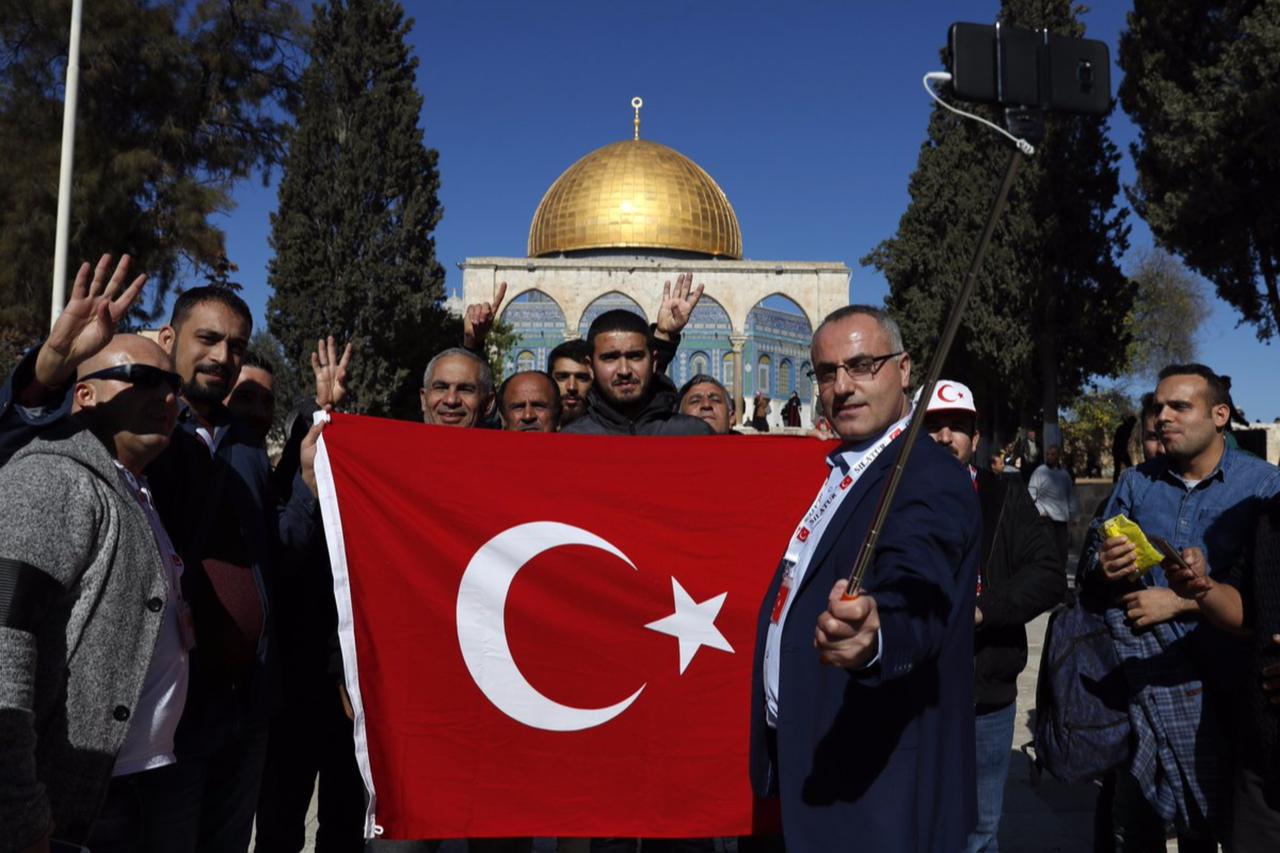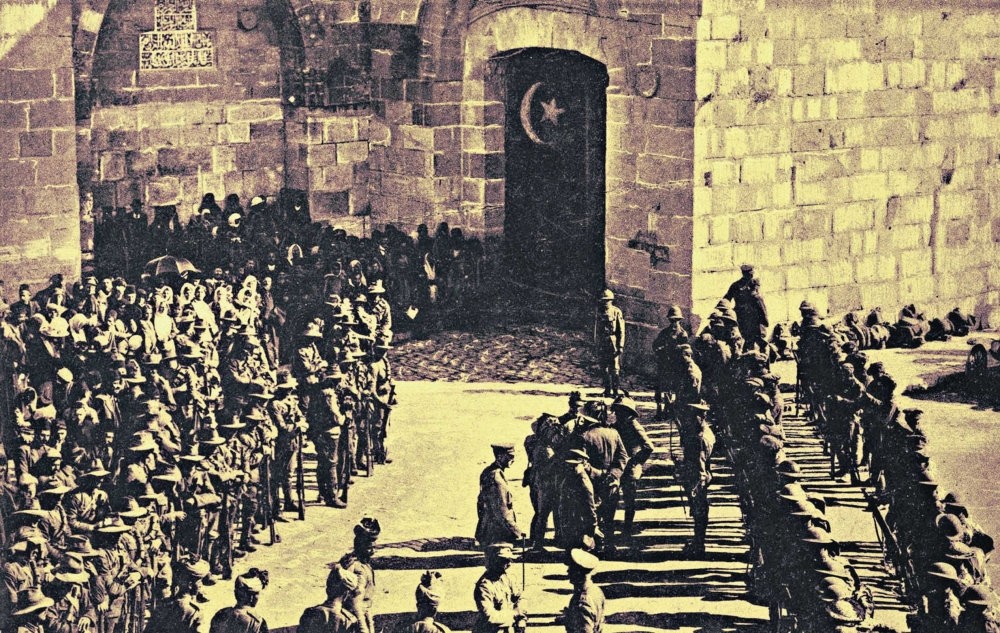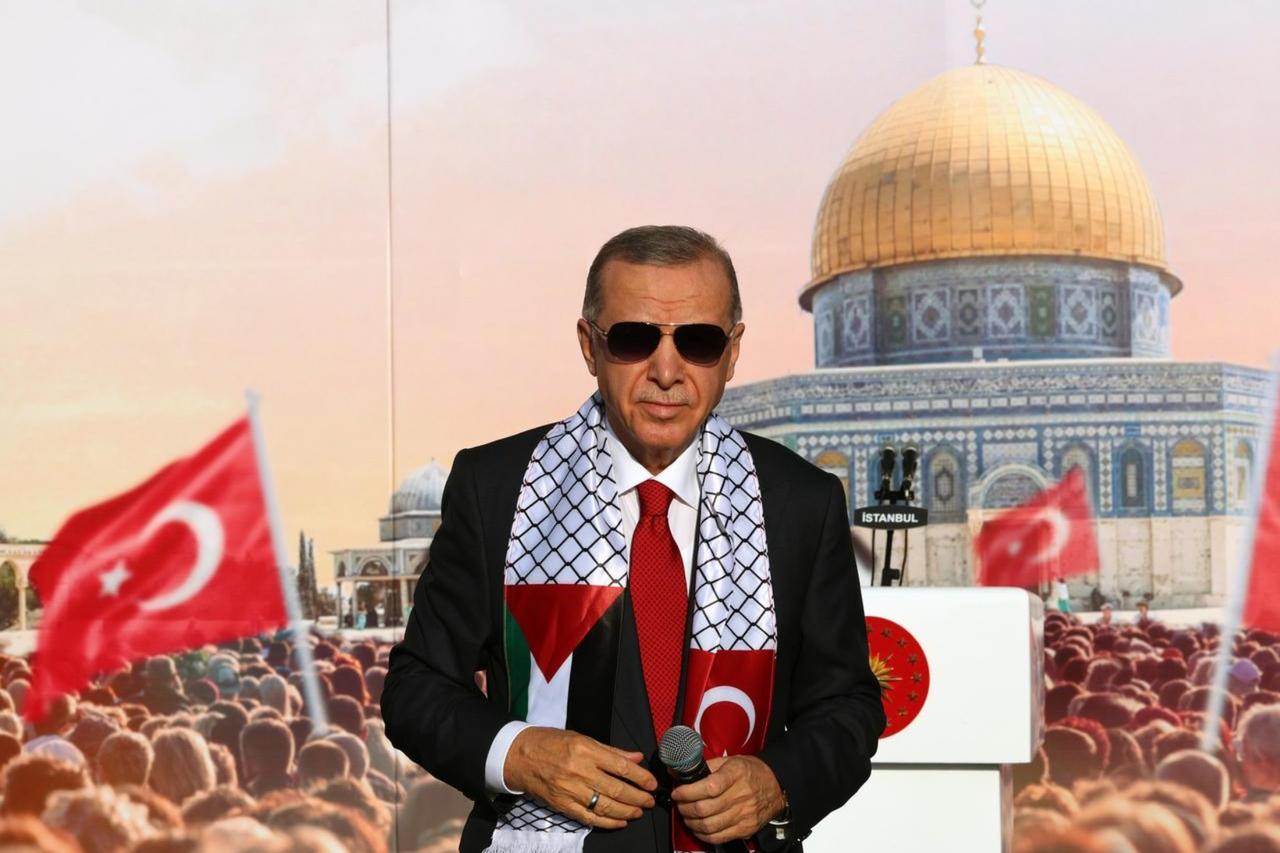
A new nationwide survey by the Institute of Social Studies sheds fresh light on how Turks understand nationhood, history, and belonging.
The report, titled “Society 2025—Türkiye’s Nationalism Map,” was released this week and explores how citizens relate emotionally to key cities and regions—as well as how they define the boundaries of the Turkish nation itself.
Its most striking finding is that the city of Jerusalem stands out as the city to which Turks feel the deepest emotional connection, surpassing Kirkuk, the Balkans, and Central Asia.
Kirkuk, as a city historically with a large Turkish population, is a city where Turks have left their mark. Given its former population ratio, it is understandable that it is perceived as close in terms of nationalist discourse.
However, it is noteworthy that love for Jerusalem takes precedence over many other factors.
It is a fact that the political atmosphere triggered by the mass killings in Gaza also had a major impact on the formation of this sentiment.
When asked about their emotional closeness to nine symbolic places, a clear majority—nearly six in ten respondents—said they felt “very close” or “close” to Jerusalem.
That sense of attachment remained strong even among those identifying primarily as nationalists rather than religious conservatives.
Kirkuk came second, with roughly four in ten respondents describing a similar level of connection. Among supporters of the Nationalist Movement Party (MHP), feelings toward the two cities were almost identical: about three-quarters said they felt close to Jerusalem, only slightly fewer to Kirkuk.
Even among self-declared CHP supporters, often viewed as the secular core of the electorate, around four in ten said they felt a personal affinity with Jerusalem.
The results suggest that the city, long rooted in religious symbolism, now carries broader emotional and historical meaning as an emblem that resonates across ideological divides.
The Balkans and Central Asia, the regions that are bound to Türkiye through deep cultural and historical ties, have followed the lead of these two cities.
Currently, in Turkish high school curricula, those areas once shaped by Ottoman or Islamic influence are described as part of what is often referred to in Türkiye as the “geography of the heart,” a term evoking cultural kinship beyond national borders.

When asked which period of history they took the most pride in, the public was almost evenly divided between the Republican era and the Ottoman-Seljuk past.
Just over half of respondents said the War of Independence and the founding of the Republic represented Türkiye’s most honorable period, while a little more than a third chose the imperial centuries that preceded it.
Among Turkish nationalists, pride was split almost down the middle, reflecting a dual historical consciousness that values both modern statehood and imperial legacy.
Seculars, by contrast, were overwhelmingly oriented toward the Republican period, with more than eight in 10 describing it as the nation’s proudest era.
Nationalist conservatives who blend Islamism and pan-Turkism leaned the other way, with a clear majority naming the Ottoman-Seljuk period instead.
The division underscores a continuing tug-of-war between secular and religious narratives in defining Türkiye’s national story.
A large majority of respondents, making up about two-thirds, believe Türkiye faces threats to its very existence. When asked what those threats were, the most common answer, cited by nearly a third, was the familiar notion of “foreign powers.”
Economic hardship followed distantly, mentioned by roughly one in eight respondents, while about one in ten identified Israel specifically as a source of threat.
The data confirm that, despite years of political change and shifting alliances, external interference remains the dominant frame through which many Turks interpret insecurity, a narrative that continues to underpin both nationalist and conservative discourse.
The survey’s questions on citizenship and ethnicity reveal how religious identity still shapes perceptions of national belonging.
A large majority said they see Kurds, Bosniaks, Circassians, and Albanians who are citizens of the Republic as part of the Turkish nation, with roughly seven in ten respondents sharing that view.
But the inclusiveness fades when it comes to non-Muslim citizens. Only about one in three said they consider Greeks, Armenians, or Jews equally Turkish.
The contrast suggests that while decades of ethnic conflict have not weakened the idea of “one nation,” the boundaries of that unity remain largely drawn along religious lines.

When asked where they locate their primary sense of belonging, a slim majority said they see themselves first as part of the Turkish nation, while about four in ten identified more strongly with the Islamic nation, or what is known as the ummah.
That balance illustrates a persistent dual identity in Turkish society, nationalist in form and religious in spirit, where civic and faith-based loyalties coexist rather than compete.
The study also measured how much trust citizens place in the state’s institutional continuity beyond the government of the day.
Nearly two-thirds agreed that there exists an independent “state of mind,” a long-term strategic logic guiding national policy regardless of which party is in power.
Among conservatives, belief in that unseen continuity was strikingly high, exceeding eight in ten, while Turkish nationalists mirrored the national average.
The numbers suggest that confidence in the permanence of state institutions remains a cornerstone of Turkish political culture, cutting across ideological lines.
Taken together, the findings sketch a detailed portrait of modern Turkish identity: a society that combines religious sentiment with national pride and views itself as both heir to the empire and guardian of the republic.
That Jerusalem ranks first among the places Turks feel closest to is especially telling.
More than a spiritual attachment, it reflects a sense of shared history and symbolic ownership, the idea that the city embodies the intersection of faith, heritage and geopolitics central to Türkiye’s self-image.